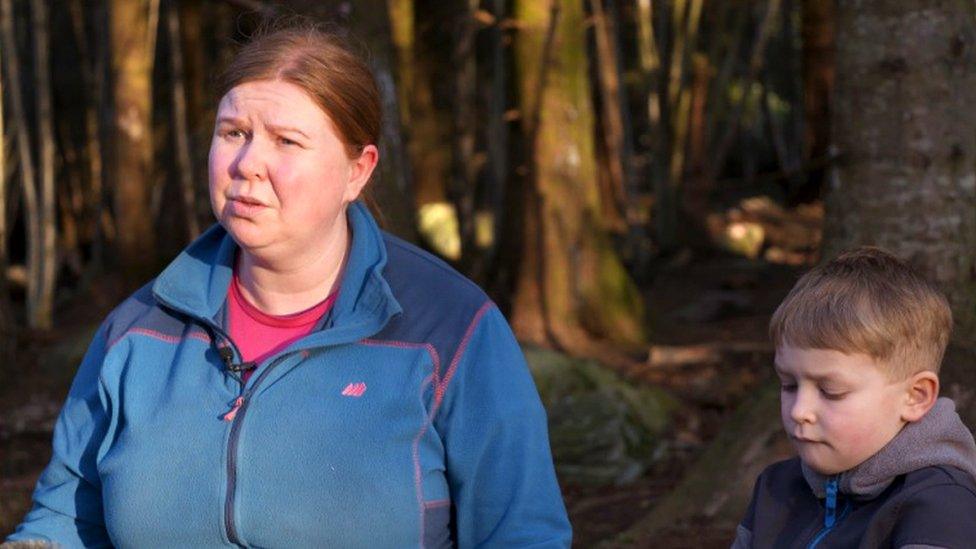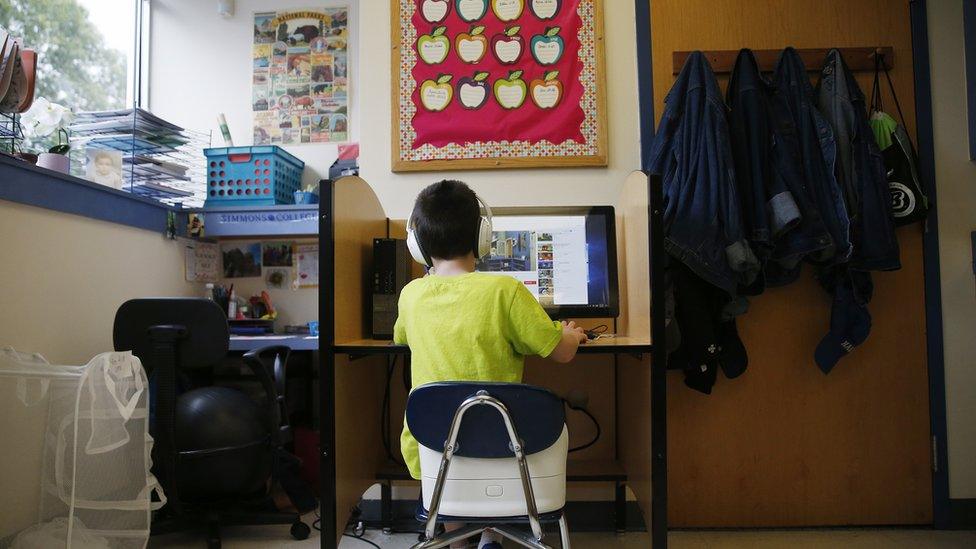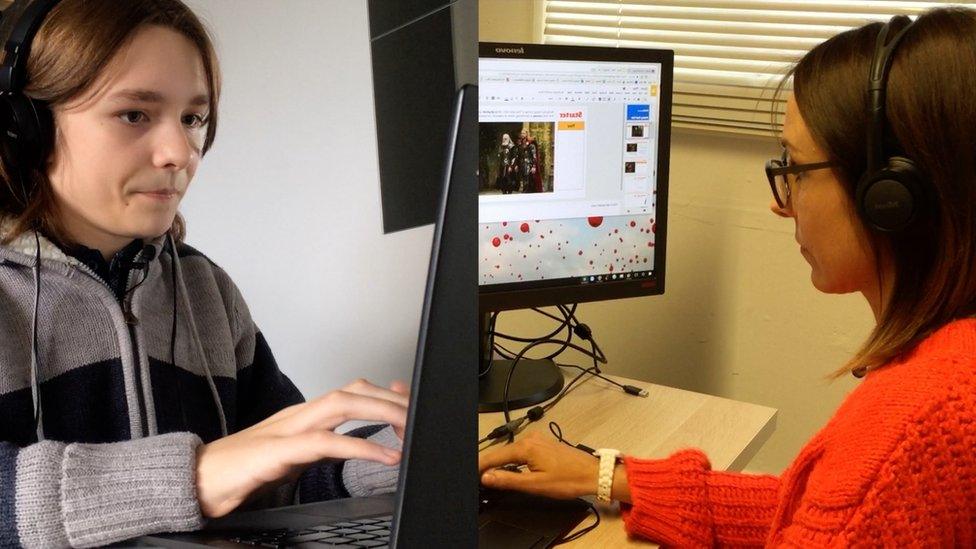Could flexi-schooling help some children?
- Published

Flexi-schooling would allow some children to spend part of their school week learning at home
When Tavis Potts' seven-year-old son was diagnosed with anxiety and stress, his parents proposed sending him to school part-time.
The youngster was struggling with full-time education and they believed he would benefit from spending half-a-day a week at home.
However, Dr Potts, a university lecturer, was disappointed that "flexi-schooling" was not an option at his son's Aberdeenshire school.
Councillors debated the idea on Thursday after one councillor, Alison Evison, said there was interest in the idea from parents.
Officials have carried out detailed analysis, external of the proposal for members of the council's education and children's services committee.
Why do some parents want the option?
Tavis Potts believes his son could really benefit from breaking up his school week with half-a-day at home.
He says the child has struggled with full-time school and an increase in work.
Although the school has been "fantastic" in helping his son, he believes flexible schooling should have been option in dealing with the issue.
"I proposed a half-a-day, for example, where I could work directly with my son, help him with his various subjects, his maths, his science, his English, his comprehension," he said.
"But also as a way to give him some extra tuition in the areas that we're all passionate about as a family, which isn't really covered by the school, for example outdoor education."

Tavis Potts believes his son would benefit from a more flexible approach to school
He said it would have helped improve his son's wellbeing and attainment.
Instead, they were given a "binary choice".
"If there were issues that needed to be addressed or opportunities that you could use, you could either have your kids at school, or you could home teach full-time," he said.
"Everything or nothing, and we think there's a middle-ground here, particularly where parents want to be actively engaged in the education of their kids."
What are the benefits and concerns about flexi-schooling?
A report drawn up on the issue for Aberdeenshire Council listed a series of advantages of flexible schooling.
It allows parents to spend more time with their children, and could give them the opportunity to learn about a subject in greater depth than if they were in the classroom, with more field trips and one-to-one attention.
For younger and less mature children, it can also be useful in giving them more time to adjust to full-time education.
Children who are recovering from a long illness can return to school again on a gradual basis. And it helps children who were previously home-schooled make a phased returned into the classroom.

The report also says flexible education can also help children with additional support needs.
But it also highlights concerns about fairness. Flexi-schooling may only be an option for families with the means and the ability to educate their children at home.
The report adds that it could add to teachers' workloads, cause resentment among children, and adversely affect attainment.

'Flexi-learning would work for us'

Dawn Ewan said son Fraser had suffered anxiety
Dawn Ewan started taking her son Fraser to the local woods to play one day a week after he suffered from anxiety at school.
As the local council doesn't offer the option of flexible schooling, she had to keep him off herself.
She said: "Fraser's very much an outdoor child. He feels very relaxed when he is outside.
"He was just finding life really quite stressful for a time. He had a lot of anxiety, and his dad and I just felt that time being outside for extended spells of time to play would help with his mental health, with his social skills, and we actually found that it made a huge difference to him, just to be able to have that break from school once a week."
Dawn would like the local council to adopt a flexi-schooling policy.
She said: "I would really like there to be a policy where parents can apply to local authorities to have flexible learning for their children.
"Much like parents who have their children in school full time and would like to home school, you could apply to the authority - and we all have our own reasons for wanting to do this - and on a case-by-case basis then that could be assessed.
"In terms of relationships with schools as well, I think it would help.
"If the child is less stressed, as a parent you are less stressed and if, as a school staff you can see the benefits, then there is more of a chance of us all working together for the good of the child."

Tony Rafferty, the Aberdeen city representative on the National Parent Forum of Scotland, said the matter needed to be seriously considered.
But he raised concerns that wealthy parents could take their child out of school for private maths tuition, while others could not afford it.
"I think if there's equity for everybody it should be looked at seriously," he added.

Tony Rafferty believes the idea should be looked at, but there are legitimate concerns about fairness
Councillor Alison Evison said that flexi-schooling could enable parents to opt for a "combination of provision", which could involve a number of days each week in school and a day or two in alternative provision such as outdoor learning or in home schooling.
She added: "This option would be a radical departure from current practice, but it is one which merits proper analysis and reasoned consideration of both the potential benefits and disadvantages."
- Published4 February 2019

- Published26 April 2018
